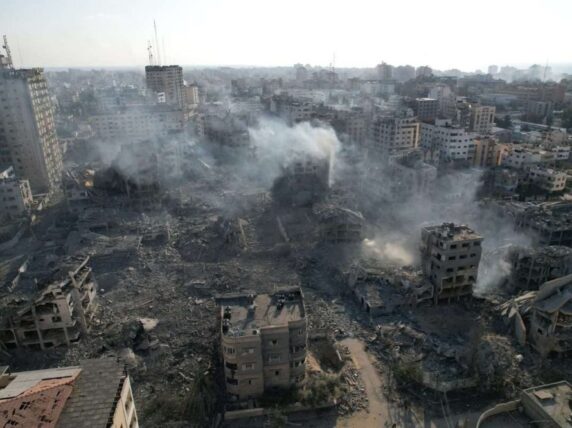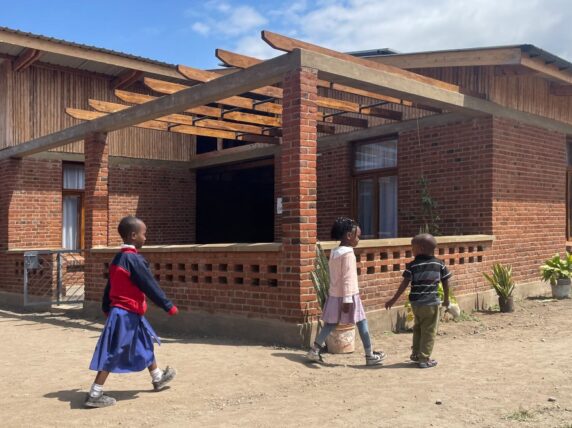Transforming partnerships: Peace Direct’s partnership approach
The concept of ‘partner’ is one of the most misused concepts in international development, because so many partnerships in this field are still built on inequality.
Marijke Priester
As the #ShiftThePower movement continues to gain momentum and the scales shift in favour of locally led efforts, we must all be careful to avoid falling into the trap of partnership values becoming buzz words with no meaning. We regularly hear stories from our partners about the ways in which they have been mistreated by international institutions, funders and INGOs, who use terms like co-design and equal partnership. In reality, their interactions are the opposite.
Imposing activities and objectives under the guise of ‘co-design’ or making local civil society organisations jump through multiple, time-consuming, and complex hoops to access funding while talking about ‘equal partnership’ is not only disingenuous but also demoralising for people already working in incredibly complex and traumatic environments.
At Peace Direct, partnership with local peacebuilders is at the heart of our mission to shift power and resources for sustainable peace, and we strive to create equitable, decolonised partnerships. One of the most powerful impacts we have witnessed as a result of the way we work is when partners have told us they felt empowered to push back against another partner or funder who was not treating them respectfully.
Over the last 18 months we have been re-evaluating our partnership approach to understand whether we live up to the recommendations made in our Transforming Partnerships report. This report was the result of a consultation with over 200 people from 70 countries to explore what equitable and decolonised ‘partnerships’ mean to them. The recommendations centred around themes of organisational development, roles and responsibilities, funding, communications, and values. Trust, humility, respect and mutuality/reciprocity emerged as four key values that should form the bedrock of all partnerships.
Organisational development
In all our work with partners we recognise explicitly that we are not the experts. Our partners are experts in their own, specific contexts and they know best how peace can be built and sustained there. What does this mean in practice? Well, as one of our partners told us in our recent partner survey, “Peace Direct never hesitates to follow the advice of local partners who know the problems of the communities better”.
Our partners also have expertise in other areas – ranging from trauma-informed peacebuilding, to safeguarding, early warning and early response systems, or providing subgrants to informal peacebuilding groups that fly under the radar of most donors. We acknowledge and make use of this expertise by bringing partners together in virtual or in-person exchanges, to learn from and strengthen each other.
Roles and relationships
Our partners do not need us to tell them what to do and how to do it, they do not need us to develop programmes for them. They do not need us to build their capacity. What they need, indeed what we all need, is a critical friend. Someone who can ask us the difficult questions, challenge us to learn and to grow, bring us different perspectives, offer us space to reflect on what we are doing and how we can improve.
This is a two-way process – Peace Direct needs this from our partners as much as our partners need it from others. This is one of the roles that we highlight in our work on the 9 roles of the intermediary. But, for this to work, we must come from a place of trust and humility. Building strong, open relationships with our partners is one of the most important things that we can do to enable this.
And it works. In our latest partner survey, one of our partners told us “we feel empowered enough to challenge Peace Direct when there is something we don’t agree with and we are confident that Peace Direct accepts our position whenever we do so.”
Funding and accountability
We strive to create a space for us and our partners to try new things and be safe to fail. We are willing to take risks that others often are not: seed funding ideas, activities or organisations that others are not willing to support, testing innovative approaches to sending funds to countries affected by bank de-risking and sanctions.
We also provide our partners with flexible funding, whether that is an unrestricted solidarity grant in moments of crisis, a rapid emergency grant to respond to changing events, flexibility in reallocating project funding according to the emerging needs of their community, or core funding in support of their organisational priorities.
We trust our partners to know and do what is best for their communities, and to be accountable to these communities. We have simplified our due diligence process and ensure that we share with our partners everything that we ask them to share with us, to reflect our guiding value of reciprocity.
Power aware behaviours
At the same time, we recognise that, in practice, we are often the ones who control the funding in our relationships with local partners, and as one of our partners recently noted “the hand that gives is always above the hand that receives”. While we continue to encourage more funders to resource local organisations and peacebuilders directly, progress is too slow.
As such, there is an inherent imbalance of power between us and our partners that we must be aware of at all times. We have to be careful that what we see as being a critical friend is not perceived by our partners as dictating decisions to be made about their organisation or work. To mitigate this risk we lean on the strong relationships that we have built and ensure that our communications are always clear, respectful and culturally appropriate.
Continuous improvement
While our partners are very positive about the way in which we work in partnership, there are still things that we can and must do better. We recognise that, along with others in the sector, we are in a constant process of self-evaluation. We must continue to listen, learn and grow so that we can be the best partner we can be, to accompany local peacebuilders in their crucial work to build peace in their own contexts the way that only they know how.
To hear more about our partnership approach, including our forthcoming resources, sign up to our newsletter – The Peacebuilder
Category
News & ViewsThemes
Operations and contracts



